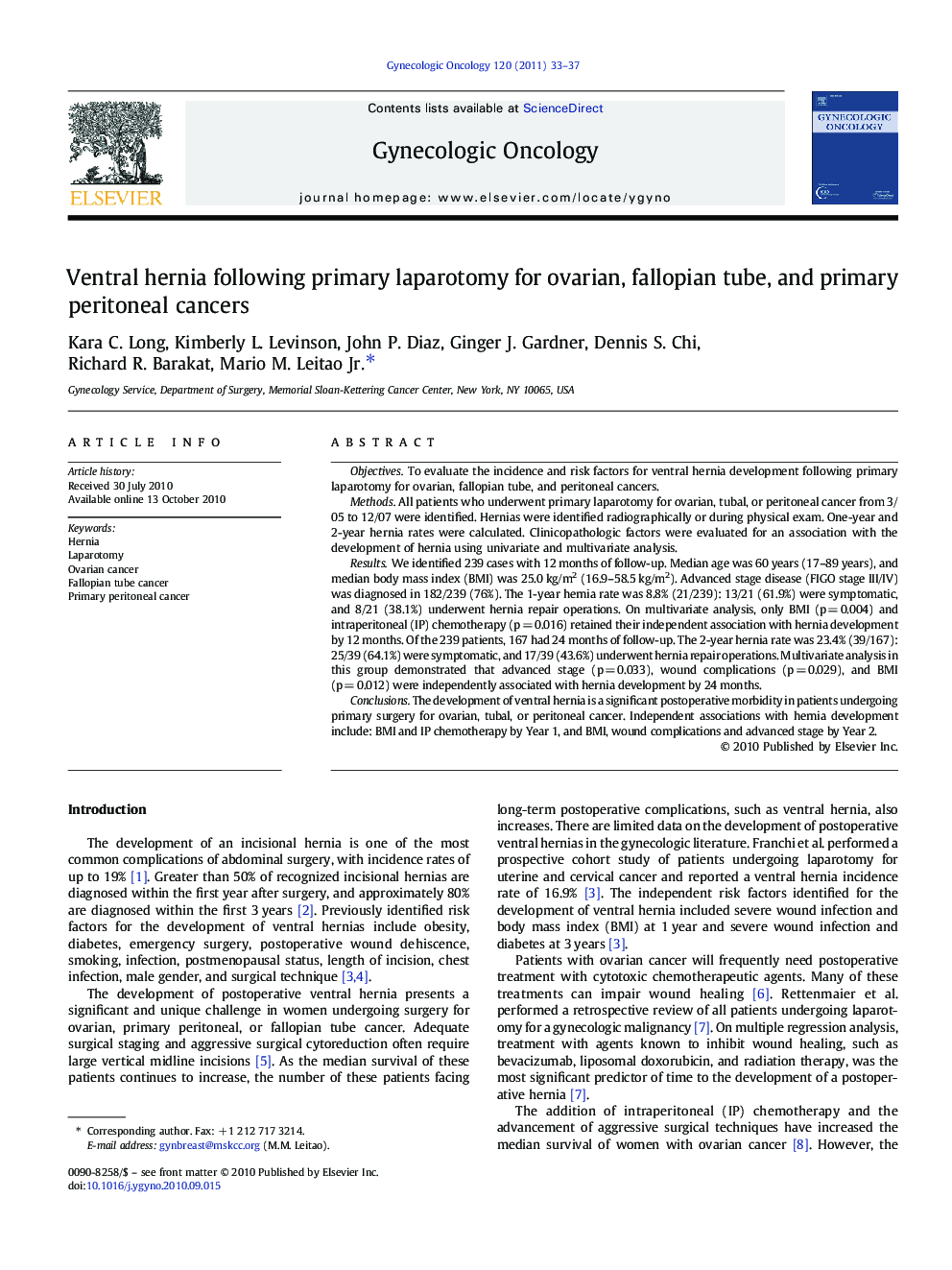| Article ID | Journal | Published Year | Pages | File Type |
|---|---|---|---|---|
| 3947176 | Gynecologic Oncology | 2011 | 5 Pages |
ObjectivesTo evaluate the incidence and risk factors for ventral hernia development following primary laparotomy for ovarian, fallopian tube, and peritoneal cancers.MethodsAll patients who underwent primary laparotomy for ovarian, tubal, or peritoneal cancer from 3/05 to 12/07 were identified. Hernias were identified radiographically or during physical exam. One-year and 2-year hernia rates were calculated. Clinicopathologic factors were evaluated for an association with the development of hernia using univariate and multivariate analysis.ResultsWe identified 239 cases with 12 months of follow-up. Median age was 60 years (17–89 years), and median body mass index (BMI) was 25.0 kg/m2 (16.9–58.5 kg/m2). Advanced stage disease (FIGO stage III/IV) was diagnosed in 182/239 (76%). The 1-year hernia rate was 8.8% (21/239): 13/21 (61.9%) were symptomatic, and 8/21 (38.1%) underwent hernia repair operations. On multivariate analysis, only BMI (p = 0.004) and intraperitoneal (IP) chemotherapy (p = 0.016) retained their independent association with hernia development by 12 months. Of the 239 patients, 167 had 24 months of follow-up. The 2-year hernia rate was 23.4% (39/167): 25/39 (64.1%) were symptomatic, and 17/39 (43.6%) underwent hernia repair operations. Multivariate analysis in this group demonstrated that advanced stage (p = 0.033), wound complications (p = 0.029), and BMI (p = 0.012) were independently associated with hernia development by 24 months.ConclusionsThe development of ventral hernia is a significant postoperative morbidity in patients undergoing primary surgery for ovarian, tubal, or peritoneal cancer. Independent associations with hernia development include: BMI and IP chemotherapy by Year 1, and BMI, wound complications and advanced stage by Year 2.
Research Highlights►Ventral hernias are common in patients who underwent laparotomy for ovarian cancer. ► Many of these hernias are symptomatic and will require surgical repair. ► Intraperitoneal chemotherapy is a risk factor for ventral hernia development.
